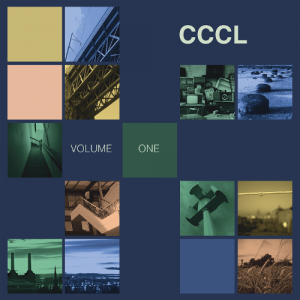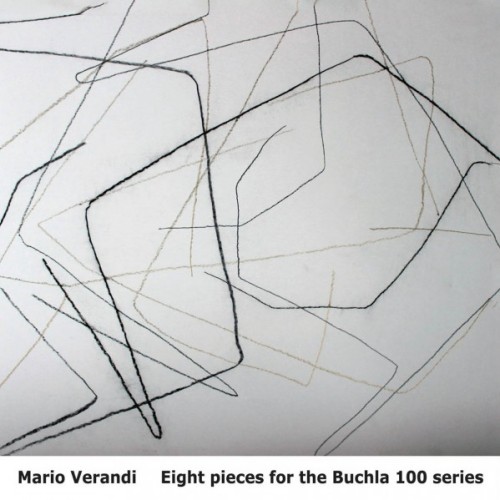Mute
 Chris Carter is a worldly presence amongst electronic pioneers. It’s a shape of music with a number of associated images: the egg-head technician, the scientist, perhaps the hermetic egoist. There’s no doubt this music is cerebral – it seems joined together in a way that in many ways defies easy explanation – but this is an alchemical method grounded in an everyday approach to the mechanisms under his control. There’s nothing ostensibly transgressive or (un) conventionally magickal on Chemistry Lessons Volume One, for instance, unless we understand magick in its purest form, the bending of Earth to will. He deals instead in the simple majesty of the world itself, the sense that there is a right way of doing things.
Chris Carter is a worldly presence amongst electronic pioneers. It’s a shape of music with a number of associated images: the egg-head technician, the scientist, perhaps the hermetic egoist. There’s no doubt this music is cerebral – it seems joined together in a way that in many ways defies easy explanation – but this is an alchemical method grounded in an everyday approach to the mechanisms under his control. There’s nothing ostensibly transgressive or (un) conventionally magickal on Chemistry Lessons Volume One, for instance, unless we understand magick in its purest form, the bending of Earth to will. He deals instead in the simple majesty of the world itself, the sense that there is a right way of doing things.
could have been a kind of philosophical plumber, in thrall to Plato’s Forms
You get the feeling he could have chosen a number of routes and applied the same problem-solving methodology. He
could have been a kind of philosophical plumber, in thrall to Plato’s Forms and eager to replicate them in the curvature of pipework (I’m thinking of those OCD plumbing / cabling pictures that occasionally appear on Twitter); or he might have found solace in the construction of
a perfect circuit-board at a television manufacturer or preparing a perfectly weighted meal at an elaborate restaurant.
Stay with me here.
Carter is a man who seems to understand that beauty of form is always the goal. Everything he’s touched (even Throbbing Gristle, who did their very best to mess with the sinews of his aesthetic) has a sense of necessity to it: that beat must be there, that squiggle ought to be that long, and no longer. He always seems to be after the way that the needs to be. As such, these pieces feel meticulous in their construction, even if they are also playful, delicate, occasionally funny, acidic and so on.
it paradoxically compiles a diverse set firmly mired in a unifying vision
These tracks make for a strange, multi-levelled journey, reminding me at times of the gently crazy tangents that
Black Dog went on around the time of
Spanners. While the
CarterTutti /
Carter Tutti Void stuff found a fizzling groove and went with it in extended, ritualistic bursts, this album feels like the tracks were made over a longer period of time. Digging a little deeper, it seems like this is a compilation of sorts, even if
it paradoxically compiles a diverse set firmly mired in a unifying vision.
sketches that are designed to be sketches
Even as every track is differently hued to the next, you never get the feeling that there’s any repetition here. In fact, they don’t even repeat within themselves; almost all the tracks are short, way shorter than we’ve come to expect from this kind of thing. I can see someone (maybe him) stretching these to transcendental lengths, flipping them into something vaguely
Villalobotic, but I think that might also be slightly missing the point: these are
sketches that are designed to be sketches. They are things in themselves. That said, a friend’s primitive tape-to-tape hour long “remix” of “Ab/7a” (still an unparalleled shimmering classic, evoked in places here) remains one of my favourite auditory artefacts, so who knows what’ll come from this?
If anything I’ve said so far makes this seem like in might be one of those tinklingly pointless (and pointillist) “my-modular’s-bigger-than-yours” sets so beloved by people with too much time on their hands, then I’m not doing a great job at describing it. It’s nothing like that at all. Carter’s purity isn’t a grinding one; he adds in drum machines, manipulated vocals and possibly several gadgets that only he knows the name of. There’s a placement to all this that makes everything fit beautifully together, but this also doesn’t mean this is an exercise in dry manipulation; a lot of this is pretty music, some of it is even rhythmically close to the Martin Denny / Les Baxter albums that I used to listen to on internet radio back in the dial-up days.
out to express this machine consciousness without too much digression
Other tracks use melody in the same way that
Orbital or
Jean-Michel Jarre use melody; the machines are really made to sing, even if the melodies are sometimes gently surrounded by chattering machines that seem to have escaped from
Karlheinz Stockhausen’s studios. He never messes too hard with the beauty; he’s
out to express this machine consciousness without too much digression. This is what these machines were meant to do.
We are very lucky that he didn’t become a plumber.
-Loki-
 Chris Carter is a worldly presence amongst electronic pioneers. It’s a shape of music with a number of associated images: the egg-head technician, the scientist, perhaps the hermetic egoist. There’s no doubt this music is cerebral – it seems joined together in a way that in many ways defies easy explanation – but this is an alchemical method grounded in an everyday approach to the mechanisms under his control. There’s nothing ostensibly transgressive or (un) conventionally magickal on Chemistry Lessons Volume One, for instance, unless we understand magick in its purest form, the bending of Earth to will. He deals instead in the simple majesty of the world itself, the sense that there is a right way of doing things.
Chris Carter is a worldly presence amongst electronic pioneers. It’s a shape of music with a number of associated images: the egg-head technician, the scientist, perhaps the hermetic egoist. There’s no doubt this music is cerebral – it seems joined together in a way that in many ways defies easy explanation – but this is an alchemical method grounded in an everyday approach to the mechanisms under his control. There’s nothing ostensibly transgressive or (un) conventionally magickal on Chemistry Lessons Volume One, for instance, unless we understand magick in its purest form, the bending of Earth to will. He deals instead in the simple majesty of the world itself, the sense that there is a right way of doing things.


